The highly infectious viral illness known as bird flu, or avian influenza, typically affects birds but can infect people and other animals. Several bird flu outbreaks have been in recent years, endangering public health and costing poultry producers a lot of money.
Protecting your flock from bird flu is essential as a poultry farmer. This entails putting excellent biosecurity procedures into effect, keeping an eye out for illness symptoms in your flock, immunizing your birds, and adhering to local laws.
In this article, I will go through different steps you may take to safeguard your chickens from the bird flu epidemic in more detail. By taking these steps, you can contribute to the safety and well-being of your flock and stop the disease from spreading across your neighborhood.
Put Good Biosecurity Principles Into Practice
Putting appropriate biosecurity protocols into place is one of the most important things you can do to safeguard your chickens from the bird flu epidemic. Various steps are taken to stop the introduction and spread of illness on your farm.
Restricting access to your farm, isolating new birds, sanitizing equipment and buildings, and maintaining a clean atmosphere are all examples of good biosecurity standards.
On your farm, it’s crucial to regulate the movement of both humans and machinery. Anybody accessing your farm should do so with clean footwear and clothing and avoid touching any other birds before doing so. Also, to assist in lowering the danger of illness transmission, you may put footbaths and antibacterial mats at entrances.
To avoid the accumulation of pathogens, properly dispose of dead birds, garbage, or dung.
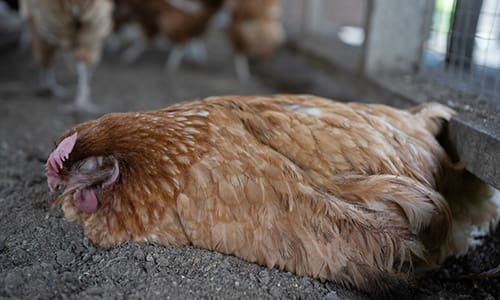
Establishing A Safe Coop And Run
To protect your birds away from wild birds, which may be carriers of the bird flu virus, you must have a safe coop and run. To stop birds from flying in and out of your coop, it should be surrounded with netting or wire mesh.
The run should also be covered to give your birds a secure outside area. You may also utilize an electric fence to protect your birds from predators like foxes and raccoons.
Be careful to periodically clean and disinfect the coop and run. In order to reduce the danger of disease transmission and the attraction of wild birds, clean up any spilled food or water.
It’s crucial to provide the coop with enough room and ventilation. Crowded areas raise the potential of illness transmission and stress, all of which can impair the immune systems of your birds. Each bird needs at least 2-3 square feet of room in your coop.
Moreover, check that the coop is adequately aired to avoid moisture buildup, which might raise the risk of illness. Maintaining appropriate temperatures and humidity levels for your birds is possible with proper ventilation.
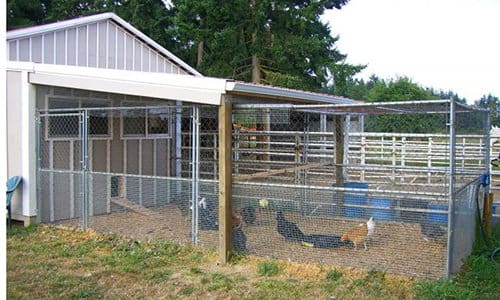
Checking For Indications Of Bird Flu In Your Flock
It is essential to watch for any symptoms of bird flu in your flock since early diagnosis can limit the spread of the illness. Reduced egg production, unexpected mortality without any warning indications of disease, and respiratory symptoms like coughing and sneezing are all hallmarks of avian flu in chickens.
If you see any of these signs, immediately separate the infected birds and call your veterinarian. Regular flock monitoring is crucial, especially when bird flu infections are more likely to develop.
You can detect any changes in the health of your flock promptly with routine health exams and record-keeping. In addition, maintain tabs on your birds’ actions, hunger, and egg production. This can assist you in the early detection of any potential health issues.
Also, it’s critical to collaborate with your veterinarian to create a customized monitoring strategy for your particular flock. For example, your veterinarian can advise you on how frequently to conduct health examinations and which diagnostic procedures are required.
Related: Recognizing And Treating Common Chicken Diseases
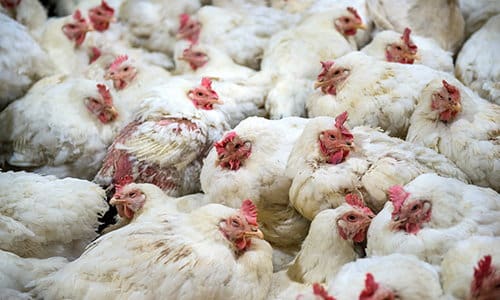
Upholding Proper Hygiene Standards
To keep your chickens safe from the bird flu, maintain proper cleanliness habits. Handling birds entails maintaining excellent hand hygiene and using safety gear. Before and after taking birds and after touching any equipment or surfaces in the coop, always thoroughly wash your hands with soap and water.
While handling birds, avoid touching your face or lips since this might increase the risk of illness transmission. Protect yourself from diseases by holding birds while wearing gloves and other protective gear.
The coop and run should be cleaned and disinfected regularly to ensure optimum hygiene. Clean up spilled food or water, and frequently remove trash or animal waste. Clean the whole coop with a disinfectant, particularly in high-contact areas like feeders and waterers.
While using disinfectants, follow the manufacturer’s directions and wear gloves and protective gear to prevent skin irritation. To avoid the growth of germs, you should also frequently replace any sleeping materials.
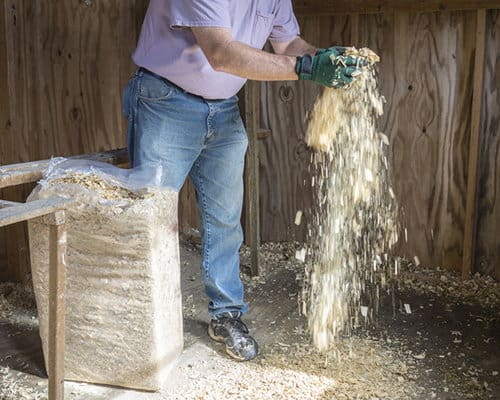
Vaccination Of Birds
A crucial defense against bird flu is vaccination of your birds. Several vaccinations can help protect against certain viral strains. Consult your veterinarian for advice on the best immunizations for your flock and the best times to administer them. To preserve the efficacy of vaccinations, it’s critical to give them as directed by the manufacturer and to handle and store them carefully.
Vaccination can be given intravenously or via drinking water. The type of vaccination and the age of the birds will determine the administration technique. Adherence to the advised immunization schedule is crucial since certain vaccinations need a booster dose to be effective.
Final Thoughts
Safeguarding your chickens from the bird flu pandemic necessitates a thorough strategy that involves putting a biosecurity plan into place, maintaining proper cleanliness, and immunizing your flock. You can reduce the chance of illness transfer and preserve the health of your birds by following these instructions.
Remember that prevention is the best defense against bird flu for your flock.
Keep up with the most recent outbreaks and take the necessary precautions to stop the sickness from spreading.
You may also like:
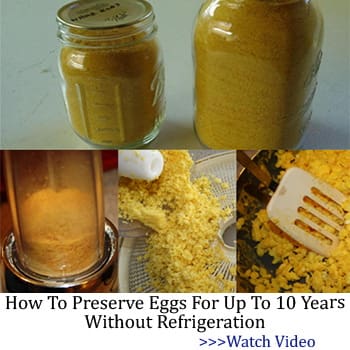 The Best Chicken Breeds for Your Homestead
The Best Chicken Breeds for Your Homestead
The Only Plant That Will Make Your Poultry Lay More Eggs Than Usual (Video)
The Dos And Don’ts Of Buying Livestock
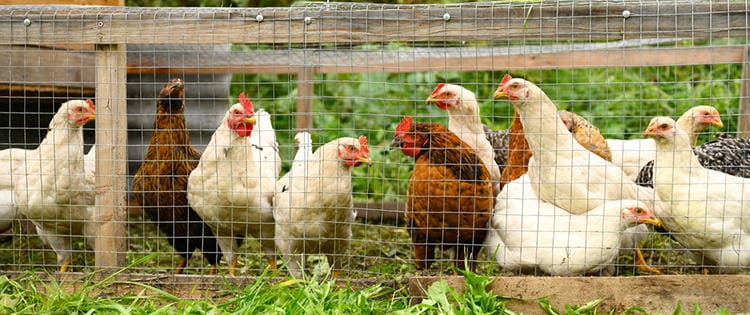








Bird flu virus, Avian flu virus is NOT a thing. Learn about the virus lie by reading many books put out on it and much research done trying to prove viruses, NEVER successfully, utilizing the good-ole, logical, fool-proof scientific method. Look up “The Viral Delusion”, “The Contagion Myth”, “What Really Makes Us Sick”, all just to get started. See Drs. Sam and Mark Bailey (read his paper refuting viruses), Tom Cowan, Andrew Kaufman, Stephan Lanka, Mike Donio (www.viroliegy.com). EVERYONE NEEDS TO LEARN THIS INFO. THIS IS NOT DISINFO. Read it and use your own critical thinking. It is the logical conclusion, rather simple. One need not be a scientist or virologist to understand. It is simple logic and the use of a critically-thinking mind, which sadly is growing to be a rarer thing these days.
VACCINES ARE AN UNNECESSARY POISON TO OUR BODIES AND TO OUR ANIMALS BODIES, WHICH WHEN EATEN POISONS US AGAIN TOO.
FEAR IS A GREAT TOOL FOR CONTROL. Witness 9/11; witness the past few years.
I wouldn’t recommend vaccinating birds. Isn’t that the point of having your own?